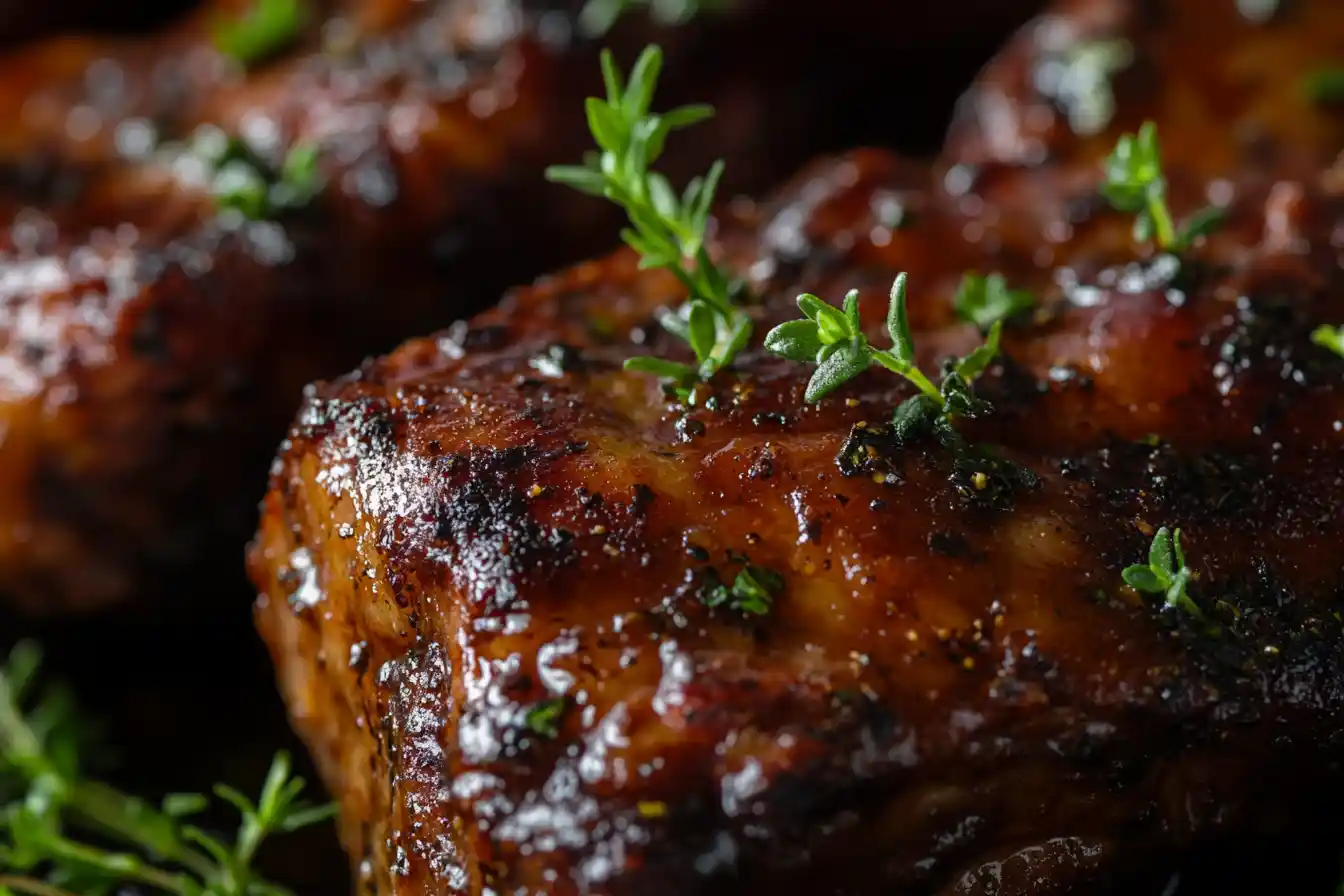Why do people eat lamb over beef? This article explores the many reasons behind this culinary choice. We’ll delve into aspects like flavor, health, cultural factors, and more to understand why some prefer lamb over beef. Discover the compelling reasons why lamb might be the preferred option for some over beef, and delve into the lamb vs beef debate.
The Allure of Lamb: Understanding Its Unique Flavor Profile
Many choose lamb over beef due to its unique and appealing flavor profile. Indeed, lamb offers a distinct taste that differs significantly from beef. Comparatively, lamb often has a richer, more gamey taste. This flavor, moreover, is a characteristic that some find incredibly satisfying. Therefore, people who prefer the taste of lamb often seek this particular taste experience. Beef, on the other hand, has a more straightforward and often milder taste. Consequently, the preference between the two is often based on personal taste and experience, which is why understanding the flavor difference is important when considering why do people eat lamb over beef. This explores the central debate of lamb vs beef.
The Gamey Flavor: A Key Difference in the Lamb vs Beef Choice
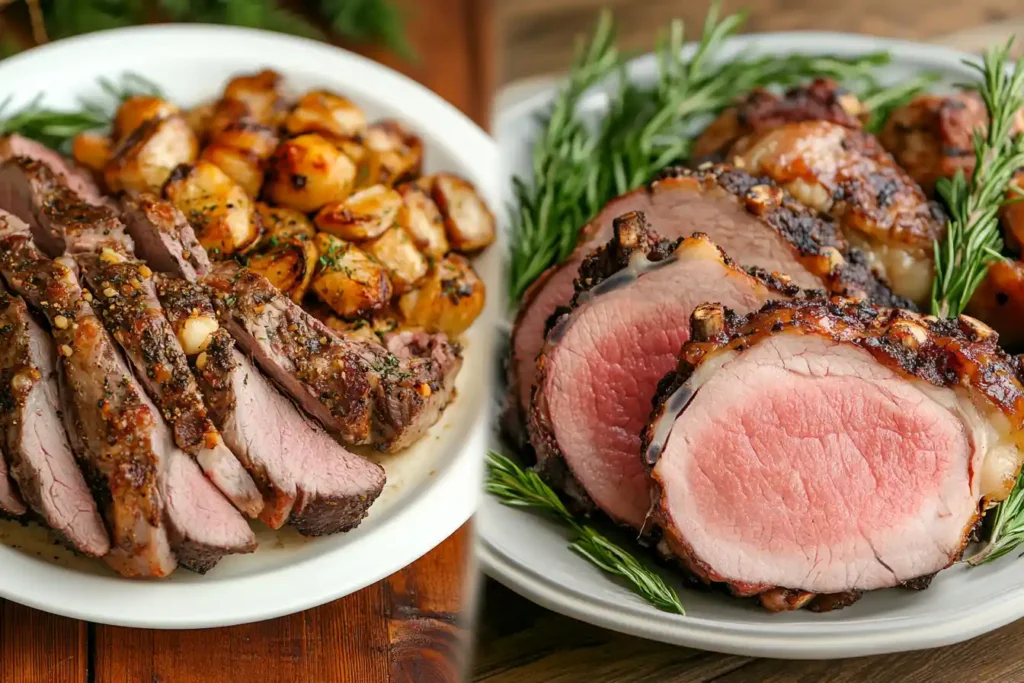
The gamey taste is an important part of what makes lamb different. This flavor comes from compounds that develop within the animal. Additionally, the diet of lambs can impact this distinct taste. However, this flavor is not always present in all lamb. For example, younger lambs typically have a milder taste. Ultimately, for those who appreciate it, the gamey flavor is a key reason why they select lamb over beef. Specifically, it provides a more complex and flavorful experience, which is often a central reason why do people eat lamb over beef. This distinct taste is a major consideration in the lamb versus beef choice.
How Fat Content Enhances Lamb’s Flavor When Choosing Lamb Over Beef
The fat content of lamb also contributes to its unique taste. Lamb fat is known for its slightly higher melting point. Subsequently, this can lead to a different texture and mouthfeel. Therefore, when cooked correctly, the fat of lamb can enhance its flavor. Comparatively, beef fat, while also flavorful, melts differently. Therefore, the fat’s impact on the overall taste is a key part of the lamb versus beef decision. Ultimately, fat content plays a crucial role in culinary outcomes, influencing why some people eat lamb over beef and why they prefer lamb.
Health Considerations: Is Lamb Better Than Beef?
Health is another important factor when people decide between lamb and beef. Specifically, each type of meat offers different nutrients. Additionally, the fat content, along with other health aspects, can influence this choice. Consequently, knowing the nutritional profile is important for health-conscious people. Understanding these factors helps clarify why some people eat lamb over beef based on health reasons. This section weighs the health benefits in the lamb vs beef debate.
The Nutritional Content of Lamb: Benefits Over Beef?
Lamb is a rich source of important nutrients, including proteins and some vitamins. For example, lamb is very high in protein, which is essential for building and repairing tissues. In addition, lamb contains B vitamins, such as B12. These B vitamins are important for nerve function and energy production. Therefore, many see lamb as a good source of key elements. Furthermore, lamb provides iron, which is important for blood health. Indeed, these benefits make lamb a valuable part of a balanced diet, providing reasons why do people eat lamb over beef and making a case for preferring lamb.
Comparing the Nutritional Content of Beef and Lamb
Like lamb, beef is also a good source of proteins and vitamins. Additionally, beef is high in B vitamins and iron. However, the balance of fats can differ somewhat between beef and lamb. Specifically, the fat content of beef can vary more depending on the cut. Therefore, consumers should be aware of the specific nutritional content. Furthermore, similar to lamb, beef is important for maintaining a healthy diet. This provides a clearer look at lamb vs beef.
A Detailed Look at Fat and Cholesterol in Lamb vs Beef
The fat content, however, is where the biggest differences often lie. Lamb often has slightly more fat than some cuts of beef. This fat, furthermore, can be saturated fat, which has been a concern for some. However, it’s important to note that fat requirements vary, and a balanced intake is often recommended. Similarly, beef also has different fat levels that people need to be aware of. Comparatively, the cholesterol in both lamb and beef is comparable. Consequently, those conscious about their fat intake should look at lean cuts of both beef and lamb. Limiting saturated fat intake is a common goal for many. Therefore, selecting leaner cuts can help maintain a healthy fat balance. This consideration is key for those pondering why do people eat lamb over beef, and helps in the lamb vs beef decision.
Exploring Micronutrients: Selenium, Zinc, and Potassium in Lamb and Beef
In addition to the macronutrients, lamb and beef both provide crucial micronutrients. For instance, both are sources of selenium, an antioxidant that helps protect cells. Moreover, lamb is a good source of zinc, which is important for immune function. Beef also contains potassium which supports bodily functions. These nutrients are essential for overall health. Therefore, understanding these components can help make conscious choices, which are integral when considering why do people eat lamb over beef and making informed choices when choosing lamb over beef.
Digestive Considerations: Is Lamb Easier to Digest Than Beef?
Some people find lamb easier to digest than beef. Specifically, the fat composition of lamb may lead to less bloating for some individuals. However, this can vary widely from person to person. Furthermore, different cooking methods can also influence digestion. Consequently, individual digestive responses can play a role in food selection, impacting the choice of whether people eat lamb over beef. Therefore, observing how your body reacts to each meat can guide your preference in the lamb vs beef debate.
Cultural Significance: Why is Lamb Preferred in Certain Regions?
Cultural and regional preferences significantly impact the choice between lamb and beef. Specifically, in certain cultures, lamb holds a special place in culinary traditions. Additionally, religious preferences and historical practices affect these variations. Consequently, the reasons why people choose lamb can be deeply rooted in their heritage. Understanding these aspects is crucial to answering why do people eat lamb over beef. This dives deep into the lamb vs beef cultural preferences.
Lamb in Middle Eastern and Mediterranean Cuisine: A Culinary Staple
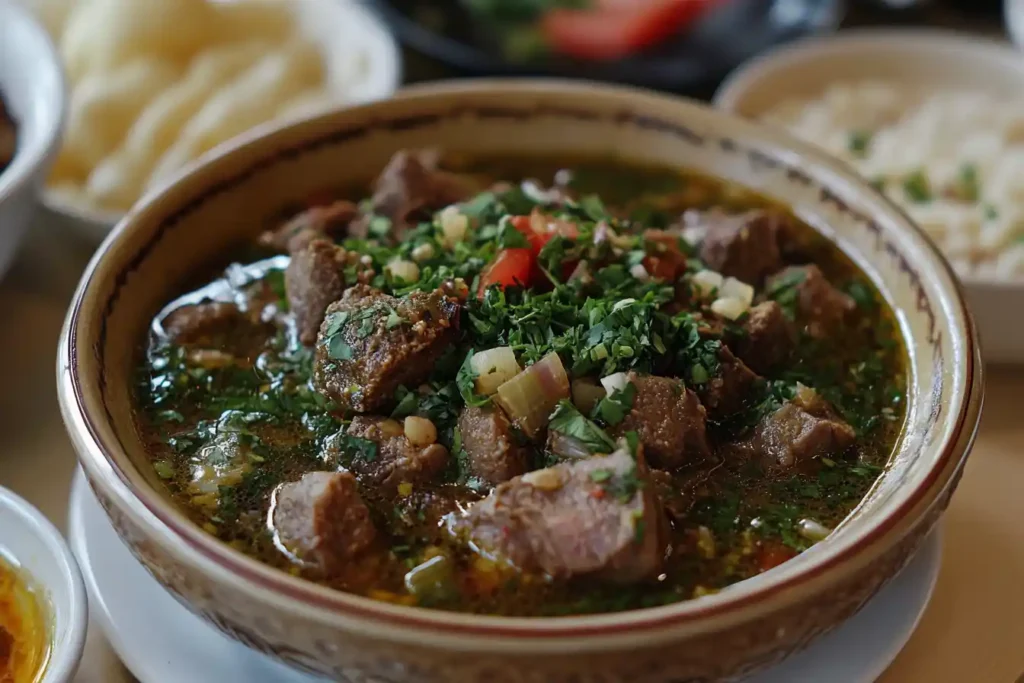
In Middle Eastern and Mediterranean countries, lamb is a staple ingredient. For instance, many traditional recipes feature lamb as the main protein. Furthermore, lamb is often cooked using ancient and time-honored methods. Therefore, this has made lamb an integral part of these culinary traditions. Moreover, the significance of lamb goes beyond just food. In addition to its culinary use, lamb can be symbolic in some cultures. Therefore, the selection of lamb is not just about taste but about identity as well. Exploring traditional dishes often leads to a deeper appreciation of lamb. This is a key component in understanding why do people eat lamb over beef.
Lamb and Religious Practices: A Symbol in Many Faiths
Lamb also holds religious significance in several faiths. For example, in certain religious events, lamb is traditionally served. Additionally, in some cultures, lamb is associated with important religious festivals. Therefore, religious practices can directly impact the consumption of lamb. Consequently, this is another reason why some people prefer it over other types of meat. Specifically, it adds a layer of cultural meaning to the dining experience. Furthermore, these rituals emphasizing lamb connect communities through faith, a major consideration in the lamb vs beef choice. The cultural impact is a significant part of the debate on why do people eat lamb over beef.
Global Lamb Consumption: Lamb’s Role in Other Regions
While lamb may not be as popular in the U.S. as beef, it has an important place in other regions. Furthermore, in parts of Europe and Asia, lamb remains a favorite. Consequently, the way people cook with lamb varies significantly around the world. Therefore, cultural factors heavily influence why people eat lamb over beef. In some places, it is a more common and traditional meat option. Exploring global culinary habits can broaden one’s understanding of food choices, shedding more light on why do people eat lamb over beef, and demonstrating the worldwide preference for lamb.
Historical Consumption: Lamb vs Beef Through the Ages
The historical consumption of lamb versus beef is also quite interesting. For example, in many older culinary traditions, lamb was more common. Subsequently, this historical precedent has shaped preferences today. Comparatively, beef has risen in popularity in certain areas due to agricultural and economic shifts. Therefore, examining the past can shed light on present-day preferences. Additionally, shifts in agriculture have influenced consumption patterns across the globe. This historical perspective is important when assessing why do people eat lamb over beef, and reveals more about the lamb vs beef history.
Preparation and Cooking: Lamb Versus Beef Cooking Methods
The way lamb and beef are prepared also influences preferences. Specifically, certain methods may work better with lamb than beef. Additionally, the diverse variations in cooking methods are an important part of this consideration. Consequently, cooking technique can significantly affect the final outcome and enjoyment of the meal. The impact of cooking on the decision of why do people eat lamb over beef is significant, and affects our view of lamb vs beef.
Ideal Cooking Techniques for Lamb: Roasting, Braising, and Grilling
Lamb is often slow-cooked to tenderize the meat and develop its flavors. For example, braising and roasting are very popular methods. Moreover, these slow methods allow lamb’s unique flavors to come through. Furthermore, lamb can also be grilled, although care should be taken not to overcook it. Therefore, the methods used often depend on the cut of lamb. In addition to these, there are many other creative methods for exploring lamb in the kitchen. Additionally, experimenting with different seasoning can enhance the flavor of lamb, influencing the preference of why do people eat lamb over beef.
How to Cook Beef: Grilling, Searing, and Braising
Beef can be cooked using a wide range of methods as well. For instance, grilling and searing are popular options for cuts like steak. Moreover, braising is also a great way to prepare tougher cuts of beef. Furthermore, beef, similarly to lamb, offers many culinary possibilities. Comparatively, the different techniques used for beef and lamb may also affect why people prefer one over the other. Exploring various cooking methods is a great way to expand one’s culinary skills and perhaps change the preference between lamb and beef.
Flavor Pairing: Complementing the Flavors of Lamb and Beef
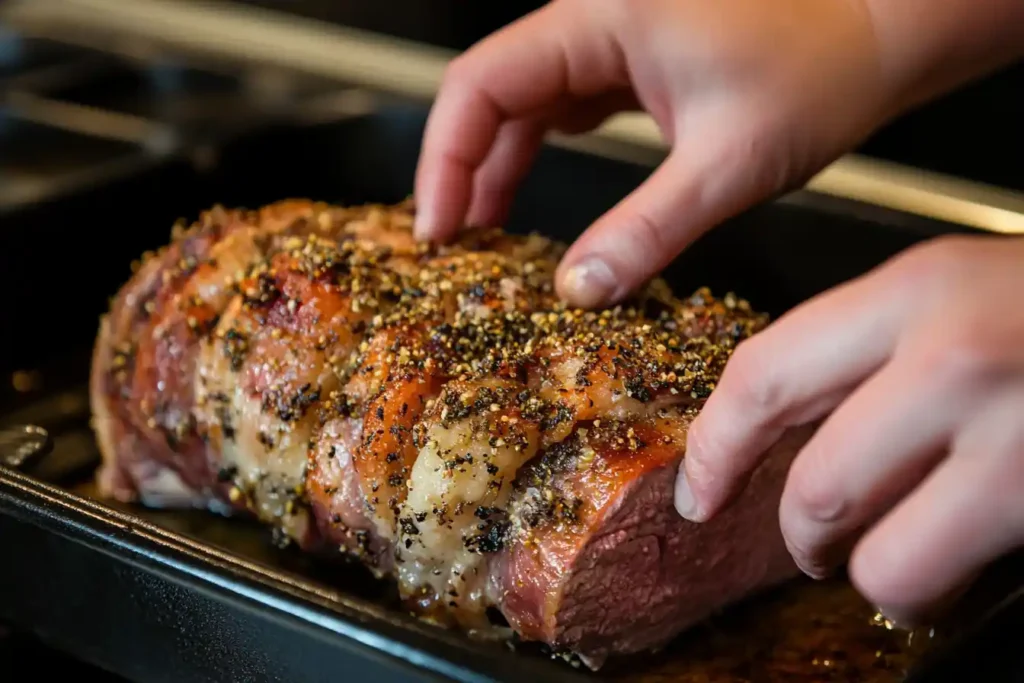
The flavor pairing of lamb differs from that of beef. Lamb, for example, often compliments bold flavors and spices. For instance, Middle Eastern spices often enhance the flavor of lamb. Additionally, herbs like rosemary and thyme pair well with lamb. Comparatively, beef often pairs well with other types of seasoning and flavors. Therefore, the flavors we choose also play a key role in the preference. Moreover, the right seasoning and herbs can significantly enhance the final dish, and can be the key to understanding why do people eat lamb over beef. This is crucial in the lamb vs beef cooking debate.
The Crucial Role of Seasoning: Enhancing the Taste of Lamb and Beef
Seasoning plays a vital role in how we experience lamb and beef. For instance, the use of different herbs and spices can completely transform the taste. Moreover, certain seasoning compliments the natural flavors of each meat. Consequently, the seasoning we use can be a significant factor in which meat we prefer. Furthermore, understanding flavor combinations can elevate a culinary experience. Therefore, exploring various seasoning is an important aspect of cooking both lamb and beef, and understanding why people prefer one over the other, ultimately influencing the decision in the lamb vs beef discussion.
Availability and Accessibility: Cost and Sourcing of Lamb and Beef
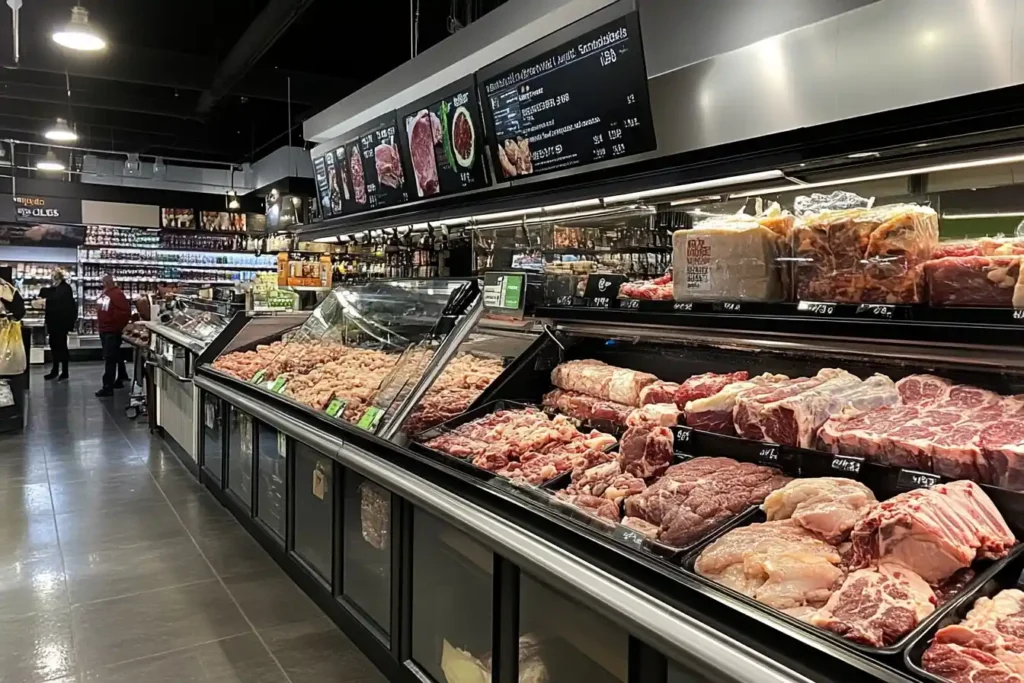
Availability and cost are also relevant factors in deciding between lamb and beef. Specifically, the price and accessibility of these meats can vary greatly depending on location. Additionally, market conditions and sourcing affect these factors. Consequently, these logistical aspects play a role in consumer decisions, impacting why do people eat lamb over beef and impacting the accessibility of both lamb vs beef.
Lamb Availability in the US: Accessibility and Sourcing
In the U.S., lamb is not always as readily available as beef. For instance, beef is typically easier to find in most supermarkets. Furthermore, lamb might be sold in specialty stores or farmer’s markets. Therefore, the accessibility of lamb can impact how often people choose it. In addition, lamb might be a bit more cost-effective than beef in some regions. Consequently, beef’s accessibility may make it more often selected. Indeed, this shows the important role that distribution networks play in food preferences, when considering why do people eat lamb over beef and understanding the availability in the lamb vs beef debate.
Beef Availability in the US: The Ease of Sourcing Beef
Comparatively, beef is widely available throughout the U.S. Specifically, nearly every supermarket offers multiple cuts of beef. Therefore, its wide availability makes it a commonly consumed meat. In addition, beef has been a popular choice for many years due to its cost-effective nature. Consequently, the ease of sourcing beef plays a key role in its consumption. Moreover, beef’s accessibility makes it a convenient choice for many households, highlighting a practical factor in why do people eat lamb over beef, and the ease of access in the lamb vs beef discussion.
Price Variations: How Cost Affects Lamb vs Beef Preferences
The price of lamb can sometimes be higher than beef. For example, some specialty cuts of lamb are considered gourmet. In addition, market fluctuations can cause shifts in the prices of both meats. Therefore, both availability and pricing influence which meat people choose. Consequently, cost can be a significant determining factor for many consumers. Furthermore, these price differences can greatly affect preferences, and that is why it is important to consider when considering why do people eat lamb over beef and how cost affects our preference when choosing lamb or beef.
Sourcing and Sustainability: Ethical Considerations in Lamb and Beef Choices
The sourcing and sustainability of both lamb and beef are also gaining increased attention. Indeed, conscious consumers are increasingly interested in where their food comes from. Therefore, sustainably sourced meats are growing in popularity. Consequently, the ethics and environmental impact of sourcing are also influencing preferences, which makes it another piece in understanding why do people eat lamb over beef. Therefore, responsible sourcing is important for many consumers, and impacts the ethical considerations in the lamb vs beef conversation.
Personal Preferences and Taste: The Deciding Factor
Ultimately, individual preferences are the main driver behind choosing lamb over beef. Moreover, taste is subjective. Additionally, past experiences can heavily influence food choices. Consequently, the preference between lamb and beef comes down to personal satisfaction, making it a key component when assessing why do people eat lamb over beef, and highlighting the personal aspect of the lamb vs beef preference.
Subjective Taste: The Role of Flavor in the Lamb vs Beef Decision
Taste, therefore, is subjective. Some people greatly enjoy the gamey flavor of lamb. Conversely, others might prefer the more neutral taste of beef. Additionally, texture and mouthfeel can also affect these preferences. Consequently, these factors highlight that taste preferences are personal. Therefore, it is important to explore different variations to determine what satisfies your palate, making it a good way to consider why do people eat lamb over beef, and understanding your personal preference when considering lamb vs beef.
Cultural and Personal History: How Background Influences Preference
Personal history and cultural factors can influence these preferences. Furthermore, childhood memories may create certain preferences. Additionally, exposure to certain foods early in life can leave a lasting impact. Therefore, both cultural upbringing and individual taste experiences shape our food decisions. In addition to this, personal preferences are also constantly evolving. Therefore, food choices can be very dynamic, and this too, has a role in understanding why do people eat lamb over beef, highlighting how our past impacts our preference in the lamb vs beef debate.
Trying Different Varieties: Exploring Lamb and Beef to Find Your Preference
Exploring different varieties of lamb and beef can help people discover what they like. For instance, different cuts of meat can offer varied tastes and textures. In addition, cooking methods can also change the experience. Therefore, experimentation is the best way to find personal preferences. Furthermore, engaging with a range of different recipes can broaden one’s culinary horizons. Exploring different culinary traditions is also a great way to discover new tastes, which will help you understand your preference and why do people eat lamb over beef, and also your own personal preference within the lamb vs beef choice.
The Texture Factor: Texture’s Influence in the Lamb vs Beef Choice
The texture of both lamb and beef can also play a role in preference. Some people prefer the tender texture of slow-cooked lamb. Others might prefer the more firm texture of a beef steak. Therefore, texture, alongside flavor, can affect our food choices. Consequently, understanding your textural preferences can help you choose between lamb and beef. Furthermore, the culinary experience also enhances one’s personal preferences, making it a key element of the lamb vs beef preference. This also explains how the overall experience can lead to the final preference.
Frequently Asked Questions (FAQs)
Why is lamb better than beef?
The choice between lamb and beef often comes down to personal taste and culinary preferences. Lamb has a more distinct, sometimes gamey flavor, while beef is typically milder. Lamb also has a higher fat content, which can enhance its taste, though it also affects its nutritional profile.
Why do Arabs eat so much lamb?
In many Arab cultures, lamb is a traditional and culturally significant food. Furthermore, it features prominently in many regional dishes and special celebrations. It is also a commonly raised livestock in this region, making it readily available.
Why do people like to eat lamb?
Many people enjoy the unique flavor profile of lamb. Additionally, some enjoy the slightly richer taste. Furthermore, lamb’s tender texture and its versatility in recipes also contribute to its popularity. Therefore, the culinary qualities make it a favorite.
Why don’t we eat lamb in the US?
Beef is more commonly consumed in the US due to its availability and established consumption preferences. Additionally, lamb may be less common because it is perceived as having a stronger, gamey flavor. Finally, some historical and cultural reasons may affect its popularity in the U.S.
In conclusion, the decision to eat lamb over beef is influenced by a combination of factors. These factors range from flavor and health to culture and availability. Specifically, lamb’s distinct taste, rich nutrients, and cultural importance appeal to many. However, personal preferences ultimately play the most important role in the choice. Furthermore, by exploring various culinary variations, one can further develop their own personal preferences and come to their own conclusion on why do people eat lamb over beef, and understand where they land in the lamb vs beef debate.

